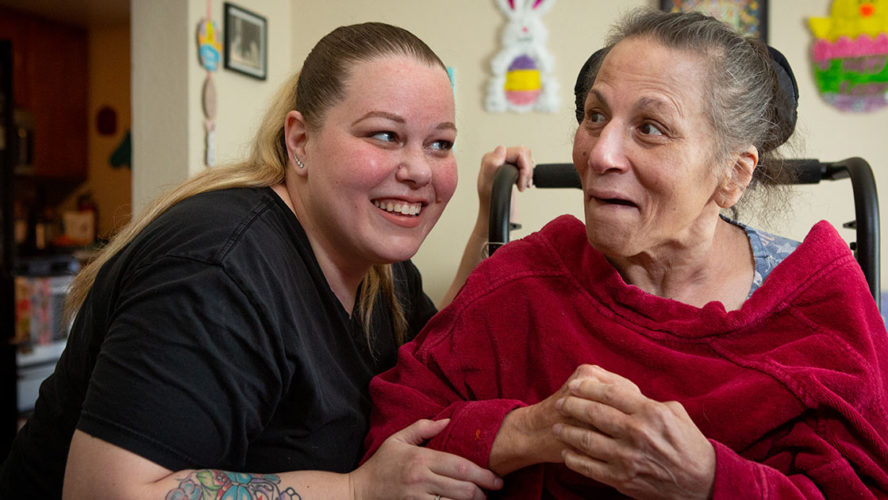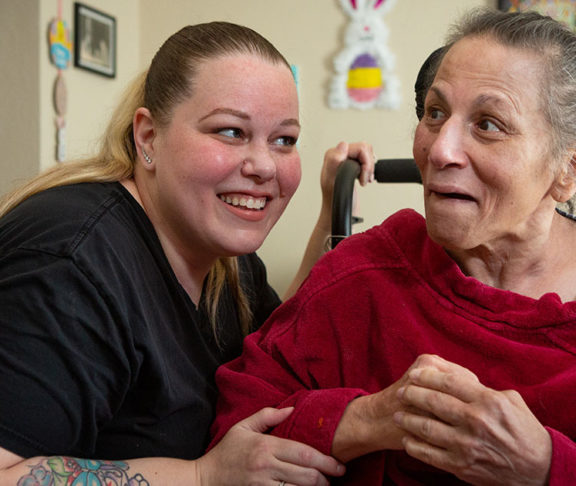Many people caring for a family member dealing with physical or cognitive decline make the mistake of trying to do it all alone.
Ailments like Parkinson’s Disease, Alzheimer’s disease, or the sudden impact of a stroke don’t affect just one person — they impact whole families. More than 16 million Americans are providing care to a family member dealing with some form of dementia or cognitive decline, according to the Centers for Disease Control and Prevention, and they face logistical, financial, and emotional challenges — starting with recognizing the need for care in the first place.
“Signs of dementia and memory loss are often one of the primary reasons families start stepping in to provide care,” noted Christina Irving, clinical services director at the Family Caregiver Alliance (FCA), a nonprofit focused on providing services to family caregivers of adults with physical and cognitive impairments. “But in the early stages, it can be really difficult to distinguish between a progressive dementia versus some typical age-related changes.”
The challenge
Some key signs of cognitive decline include memory loss that disrupts day-to-day activities or functioning. While these are typically gradual changes, other conditions like a stroke or fall can create a more abrupt need for help.
For people who suspect a family member might be experiencing cognitive issues or other health-related problems, preparation is vital. “Starting these conversations early is key,” Irving said. “Recognize that at some point pretty much everybody is going to need some level of help and assistance.”
Irving stresses that resources to support family caregivers are available in almost every community. “The National Family Caregiver Support Program is a federal program that provides support to family caregivers, and it’s administered by the local area agency on aging,” Irving pointed out. “Typically, there are also less formal social services through faith communities or other local grassroots services.”
FCA is another powerful resource. For more than four decades, FCA’s mission has been to improve the lives of family caregivers and provide support for families caring for older adults and people with cognitive and neurological impairments. Its website offers a deep library of resources, including over 300 educational materials like fact sheets, videos, and webinars, many translated into multiple languages.
One powerful tool offered by FCA is the CareNav™ online platform, which is a HIPAA-compliant, personalized record and resource system available at no cost to family caregivers, accessible via mobile device or personal computer.
“People fill out some information about themselves, who they’re caring for, and what resources or information they need,” Irving said of CareNav™. “Then they can access a personalized information dashboard. It can also connect them to additional, more intensive services at the local level.”
Self-care
Being a family care provider is stressful. “Prioritizing self-care and your own well-being is really important, and something that many caregivers feel like they can’t do because it’s the other person who needs care,” Irving said. “The challenge is trying to figure out how you prioritize your own well-being when you feel like you have absolutely no free time.”
Asking for help from other family members or friends, and engaging in short relaxation or meditation exercises can be helpful, and can simply involve taking a break to chat or text with a friend. “Caregiver support groups can also be really great resources,” Irving added, “because you can connect with people who are walking the same journey as you.”
The FCA website can help caregivers find support groups and other well-being resources, and the CareNav™ platform can connect them to local resources as well.
“Recognize that your own well-being is just as important as the person you’re caring for,” Irving advised. “You can kind of put everything aside in the short term to step in and help someone, but come back to trying to find that balance again, as much as possible.”


